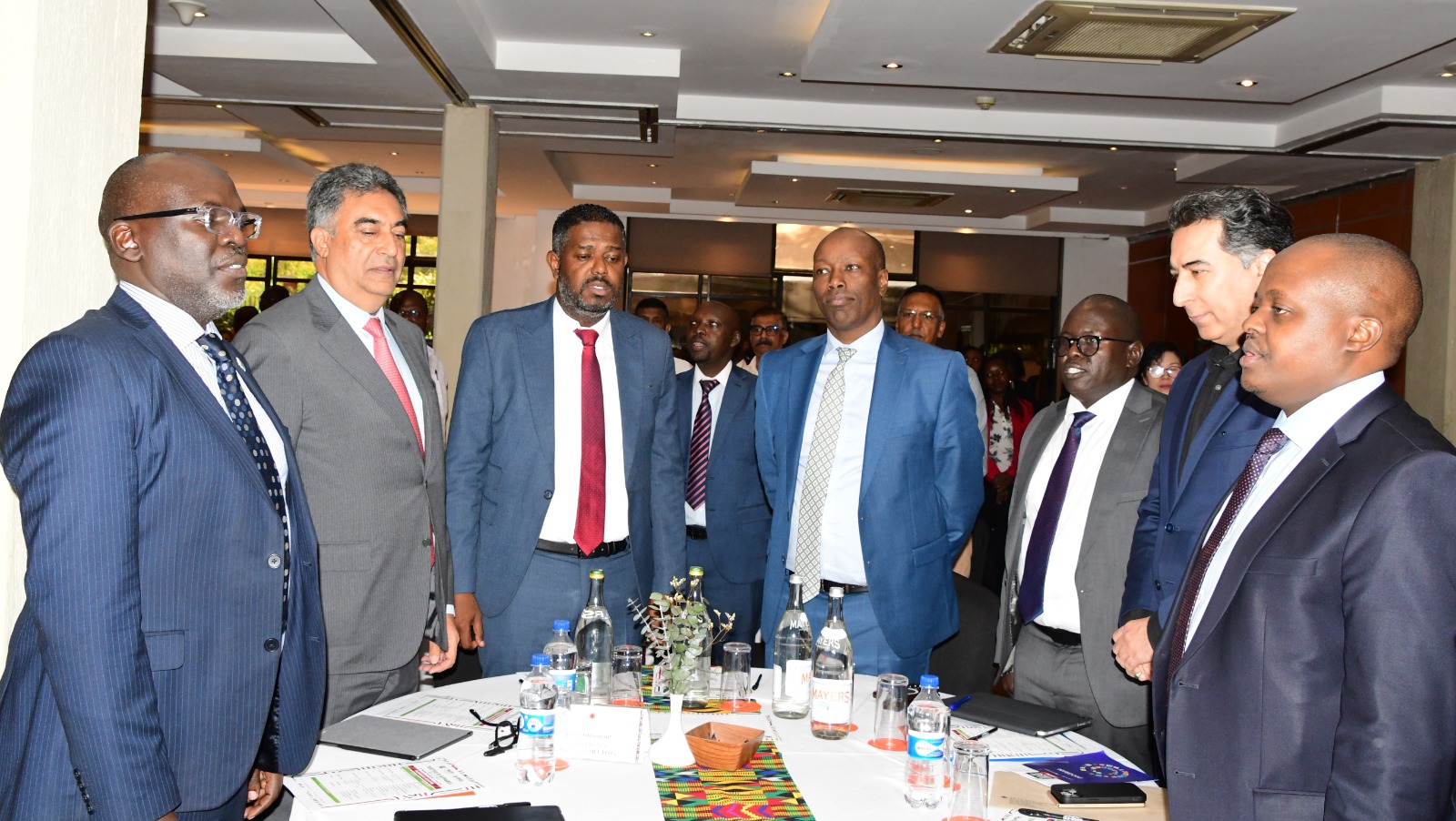Kenya Pushes for AGOA Renewal Amid New Tariff Pressures and Sector Uncertainty
The Government of Kenya is intensifying its lobbying efforts to secure the renewal of the African Growth and Opportunity Act (AGOA). This follows the recent imposition of a 10 percent tariff on textile exports to the United States. The move threatens to undermine years of export gains achieved under the AGOA framework and has raised concern among investors in Export Processing Zones (EPZ).
Cabinet Secretary for Investments, Trade and Industry, Hon. Lee Kinyanjui, gave the assurance during a consultative roundtable meeting with textile and apparel exporters under the EPZ programme held at a Nairobi Hotel. The event brought together industry players, policymakers and sector agencies to deliberate on trade barriers, investment trends and emerging policy responses.
Present at the forum was the Principal Secretary for Investment Promotion, Mr. Abubakar Hassan, whose attendance underscored the State Department's commitment to engaging and supporting private sector actors in Kenya’s investment ecosystem. The forum was also attended by the CEO of the Export Processing Zones Authority (EPZA) Mr. Richard Omelu and the CEO of the Kenya Investment Authority (KenInvest), Mr. John Mwendwa.
In his keynote address, CS Kinyanjui reaffirmed the government's proactive role in advocating for the extension of AGOA, which is set to expire in September 2025: “We are doing everything possible to ensure Kenya remains a globally competitive investment destination,” adding that “Our discussions in Washington were strategic and focused on ensuring that AGOA continues to serve as a driver of industrialization and job creation.”
During a recent visit to Washington DC led by Prime Cabinet Secretary Musalia Mudavadi, Kenya initiated direct engagements with U.S. senators and trade authorities CS Kinyanjui disclosed. Details of the ongoing negotiations remain confidential due to a non-disclosure agreement though he expressed optimism that a formal response would be communicated within the next 30 days.
Highlighting the sector’s contribution to the economy, the CS noted that 43 apparel firms operating under the EPZ programme currently employ over 66,800 Kenyans, the majority of whom are women and youth. In 2024, Kenya exported goods worth Ksh 60.57 billion to the U.S. market, representing a 19 percent increase from the previous year. Additionally, garments worth Ksh 2.85 billion were shipped to markets such as Europe, Canada, the United Arab Emirates, Mexico and Brazil.
Kenya emerged as the top exporter of textile and apparel products to the U.S. under AGOA in 2024, with exports exceeding USD 530 million. The country also maintained a leading position within the East African Community (EAC). CS Kinyanjui noted the achievements were attributed to Kenya’s strategic location, improved ease of doing business and skilled workforce.
The CS noted that the introduction of the 10 percent tariff by the U.S. poses new challenges warning that the tariff could erode Kenya’s price competitiveness, especially among cost-sensitive buyers. He called for urgent mitigation measures even as the government continues exploring multiple options. Some of these options include applying for tariff waivers, pursuing new trade arrangements, diversifying export markets and bolstering local industrial capacity.
CS Kinyanjui also addressed broader structural challenges facing the sector of which he cited high power costs, unreliable water supply, delays in customs clearance and limited access to raw materials such as cotton as key constraints. He assured stakeholders of governments” decisive steps to address these issues.
He highlighted ongoing discussions with the Ministry of Energy and Petroleum and the Energy and Petroleum Regulatory Authority (EPRA) to harmonize EPZ power tariffs with those of Special Economic Zones (SEZs) to reduce energy costs for manufacturers. Other discussions cover Infrastructure investments in partnership with county governments that are underway to improve roads, water access and waste management in industrial zones.
He revealed that the Ministry was working with the Kenya Revenue Authority and the Kenya Ports Authority to roll out digital clearance systems aimed at streamlining customs processing.
In support of skills development, the Ministry of Investment, Trade and Industry has partnered with Technical and Vocational Education and Training (TVET) institutions to build a pipeline of talent in industrial tailoring, apparel design and textile technology.
During the open forum, sector players raised concerns about investor uncertainty, limited financing options for start-ups, county levies on EPZ goods and the need for structured capacity building.
The CS acknowledged the concerns and emphasized the importance of continuous dialogue. He announced plans to prepare a joint memorandum summarizing EPZ issues for submission to county governments and encouraged the formation of roundtables between EPZ stakeholders and the county leadership.
CS Kinyanjui also challenged players to conduct internal audit of their engagement with AGOA and assess how the programme has supported their growth. He called for reduced reliance on imports for minor inputs such as buttons and zippers, urging firms to integrate local value chains and promote sustainability.
Looking ahead, the CS reiterated that Kenya is actively pursuing alternative trade frameworks, including commercial agreements and free trade arrangements with emerging markets in Europe, Asia and the Middle East. He noted that with shifting global trends such as near-shoring and regional sourcing, Kenya is well-positioned to become Africa’s leading manufacturing hub.
He reaffirmed government’s commitment to fostering a supportive and predictable investment environment urging all players in the textile and apparel ecosystem to work collaboratively to address the emerging challenges and capitalize on future opportunities.

